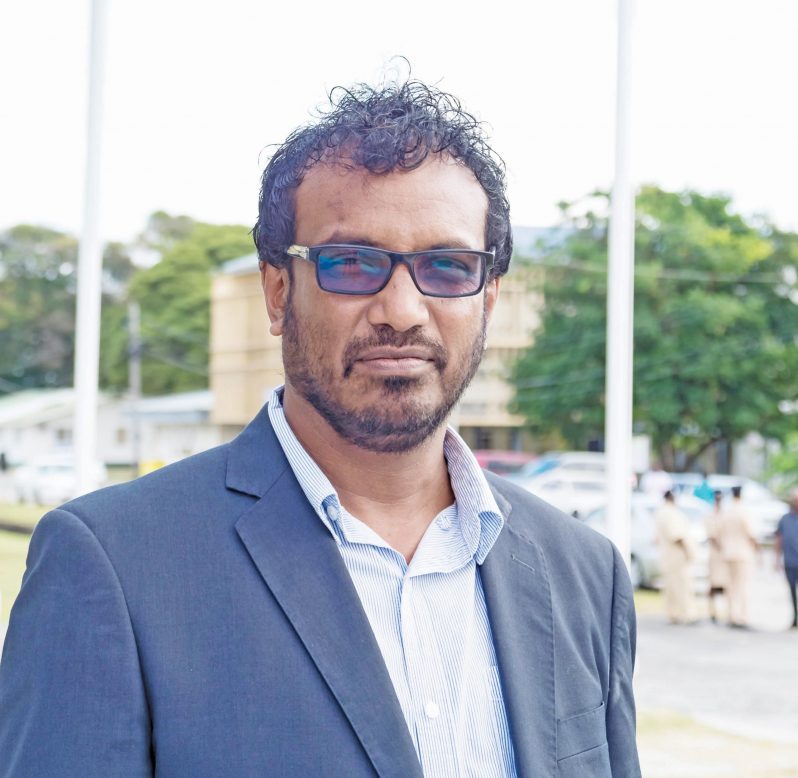IN a resounding display of unity and support for the Government of Guyana, Halim Khan, Head of the Region Three Private Sector Inc. (R3PSInc), has backed President Dr. Mohamed Irfaan Ali’s call for adherence to international law and diplomatic resolution of disputes in the face of escalating threats from Venezuela.
Khan’s endorsement came in the wake of President Ali’s address during the 78th Session of the United Nations General Debate in New York, where he condemned Venezuela’s continuous threats against Guyana’s sovereignty.
“President Ali reaffirmed that while his government welcomes efforts to bring about domestic harmony within Venezuela, agreements that defy international law and processes can form no basis for mediating such harmony. Guyana does not promote the use of violence or threats to settle disputes, but will look towards the court and the rule of law,” Khan underscored.
President Ali’s address underscored the gravity of the situation, particularly Venezuela’s recent communique rejecting Guyana’s auctioning of oil blocks, which was seen as a direct challenge to Guyana’s territorial integrity.
In his statement, President Ali demanded that Venezuela honour its obligations under international law, and seek peaceful means of settling disputes, including adjudication before the International Court of Justice (ICJ).
The President firmly defended Guyana’s right to develop its territories, and expressed confidence that the ICJ’s final decision would confirm Guyana’s ownership of the disputed boundary, thereby ensuring a peaceful and equitable resolution.
President Ali’s stance received international support, with key figures like Secretary- General of the Organisation of American States (OAS), Luis Almagro, and United States Assistant Secretary of State for Western Hemisphere Affairs, Brian Nichols, condemning Venezuela’s actions, and urging respect for international law.
The ICJ’s recent rejection of Venezuela’s preliminary objection to Guyana’s case on the border controversy further solidified Guyana’s position. This ruling means that the ICJ will proceed to decide the merits of the dispute, and issue a final and binding determination on the validity of the 1899 Arbitral Award that established the land boundary between Venezuela and the then British Guiana.
Venezuela’s recent statement rejecting Guyana’s oil block auction triggered international condemnation, and raised fundamental questions about Venezuela’s claims to ownership of these areas, given the absence of demarcation, and the existence of Guyana’s exclusive economic zones recognised under international law.
Guyana emphasised that Venezuela’s threats to prevent licensed operations constitute a threat to its sovereignty, investment partners, and regional peace and security. The United States, CARICOM, the Commonwealth, and other international actors endorsed Guyana’s sovereign right to utilise its natural resources, and rejected any infringement on its sovereignty.
Venezuela’s decision to conduct a popular referendum on defending its claim to the Essequibo has further complicated the situation. Guyana viewed this as an attempt to manipulate public sentiment and divert attention from its legal predicament before the ICJ.
Venezuela’s repeated proposals for direct talks were met with skepticism from Guyana, given the pending ICJ case, and President Maduro’s hostile rhetoric towards Guyana.
Guyana remains steadfast in its commitment to peaceful resolution and the protection of its sovereignty. Halim Khan’s endorsement on behalf of R3PSInc demonstrates the unwavering support of the private sector for President Ali and the Government of Guyana in these challenging times.



.jpg)








